By Linda Rodriguez, SVP, Behavioral Health, Early Childhood, and Community Partnerships
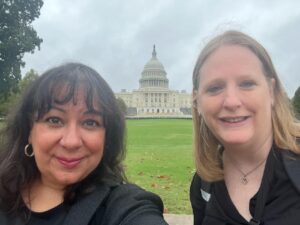
Blog author Linda Rodriguez (left) and Early Childhood Education Vice President Tanya Krien at the 2024 National Head Start Association Leadership Conference
Every year, International Women’s Day (IWD) and Women’s History Month (WHM) serve as powerful reminders of the progress made toward gender equality—and the work still ahead. In 2025, the themes #AccelerateAction for Gender Equality (IWD) and Moving Forward Together: Women Educating and Inspiring Generations (WHM) work together in a way that gets to the heart of our twofold obligation: honoring the crucial role women play in shaping the future by passing down knowledge, breaking barriers, and empowering others; and supporting women now—not just future generations. We can best accomplish both these imperatives by supporting those who work in women-dominated fields in their efforts to help their fields change and grow.
The Power of “Women’s Work”
As the Child Center Senior Vice President who oversees behavioral health and early childhood education, I am immersed in two traditionally women-dominated fields, both of which are very much rooted in the concept of social-emotional development and nurturing. Today’s women bring so much to the table. They are not only overwhelmingly women, but also increasingly women of color. At The Child Center, our team is 76 percent women and more than 80 percent people of color. We also employ team members from around the world. When they bring their diversity of experience to the workplace, we all benefit. It is incredibly important that educators and clinicians bring their diversity, language capacity, and cultural humility to the work. This is how we meet the needs of clients in a way that speaks to them, engenders trust, and makes personal and large-scale progress possible.
Pay Equity is Key to Gender Equality
It is hard to overestimate the importance of this work, yet the people who work in these two traditionally women-dominated fields are also—and not coincidentally—traditionally underpaid. While education in general is known for its low compensation, those in early childhood education get paid even less, even though they often have the same qualifications in terms of being certified, holding a master’s degree, and so on. Pay equity must be central to any efforts toward gender equality.
Influencing Change in Women-Dominated Fields
Beyond pay equity, we must elevate the voices of women leaders in fields like education and behavioral health and bolster their ability to influence the process of change and growth from within. For example, women often are responsible for multiple roles and carry multiple, separate burdens to a higher degree than men. They frequently are responsible not only for the jobs they get paid for, but also are much more likely to carry the load of being the primary caretaker at home, sometimes of both young children and elderly parents. In addition to pay equity, we need to listen to women’s voices as they speak up for work-life balance and their ideas for accomplishing it in ways that don’t require women to compromise and give up one for the other—whether that’s through advances in education or different types of paid time off and leave. It benefits all of us to listen to bold, innovative approaches to removing systemic obstacles that too often obstruct the path to success for too many women.
Shaping the Next Generation
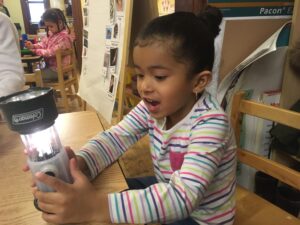
A Head Start student investigates the workings of a flashlight.
Working in early childhood, I see the potential of young girls every day. They all feel like Superwoman. They play, explore, and take on life with such joy, such vibrancy, and such purpose and confidence. It’s heartbreaking to see how girls start out feeling limitless, only to gradually lose that confidence as they grow. How and why do they lose that confidence? And how do we help them retain and build it?
At The Child Center, we strive to remove any roadblocks that prevent children (and adults) from reaching their full potential. Part of that is introducing girls to a variety of pursuits and possibilities, and conveying that nothing is “not for them”—anything they feel passionate about and want to work hard at is “for them.” Starting at the youngest age and all through middle childhood and high school, we give young people myriad opportunities to find and develop their strengths. Even today, gender stereotypes persist—from “girls don’t like math” to girls not wanting to be too loud or take up too much space. But when children of all genders and backgrounds engage in something like math or science, or even business, we help to break down these harmful and limiting stereotypes. This is how we start the journey toward the end goal of removing those gender biases and making all professions gender neutral.
Equally important is fostering girls’ self-esteem and self-image. How do we make space for young girls to have a voice? How do we allow them to be decision-makers and create a network where they feel comfortable talking about how they feel and what their opinions are? As much as we look at economic and educational opportunities, we also must look at how we can ensure they have the confidence to be advocates for themselves, to be strong in their convictions, and internalize that it’s OK to be strong in their convictions. Especially on the mental health side, we often see girls who very much feel they are not able to voice their opinions, or they have a very limiting self-image of the way they are supposed to be and behave. That is one of the many great advantages of The Child Center being a holistic, multiservice organization: educational, economic, and mental health components of each person are not treated as separate entities, but rather parts of a whole that we can support together.
As I have transitioned through different roles within my career, I have looked more and more at striving to be an advocate for women, especially women of color. Every person brings along with them the voices of inspiration of other women—whether they are colleagues, family members, or other influential people. We always carry those voices and those examples along with us on our journeys. The intersection between culture and identity and strong female influences is where potential grows and thrives. Many times, I have walked into a room, and I’d be the only woman there. It’s important that when we walk into these spaces, we walk in knowing we belong. You might be the only woman, but you worked hard to get there, and you belong. Until we get to a point of true gender equality, we must make a concerted effort to convey to young girls and women that speaking your voice is important, your perspective is important, and it’s important that what you have to say is heard.
This year’s WHM theme of “Moving Forward Together! Women Educating & Inspiring Generations” reminds us that progress is a collective effort. By sharing knowledge, breaking barriers, and supporting each other, we create a future where every girl and woman has the opportunity and confidence to succeed—however they define that success.
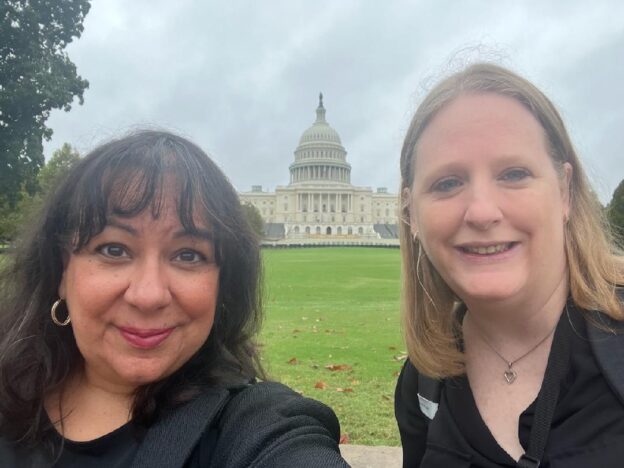
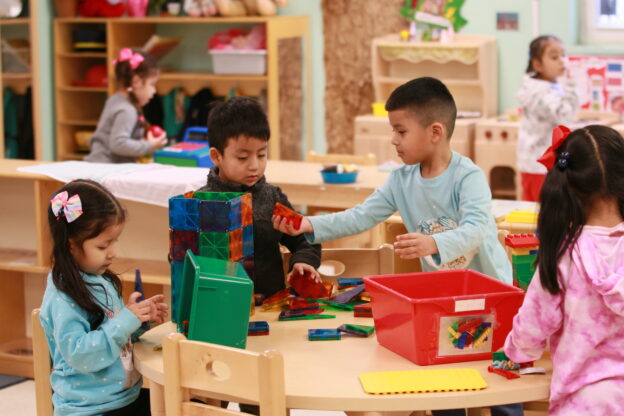
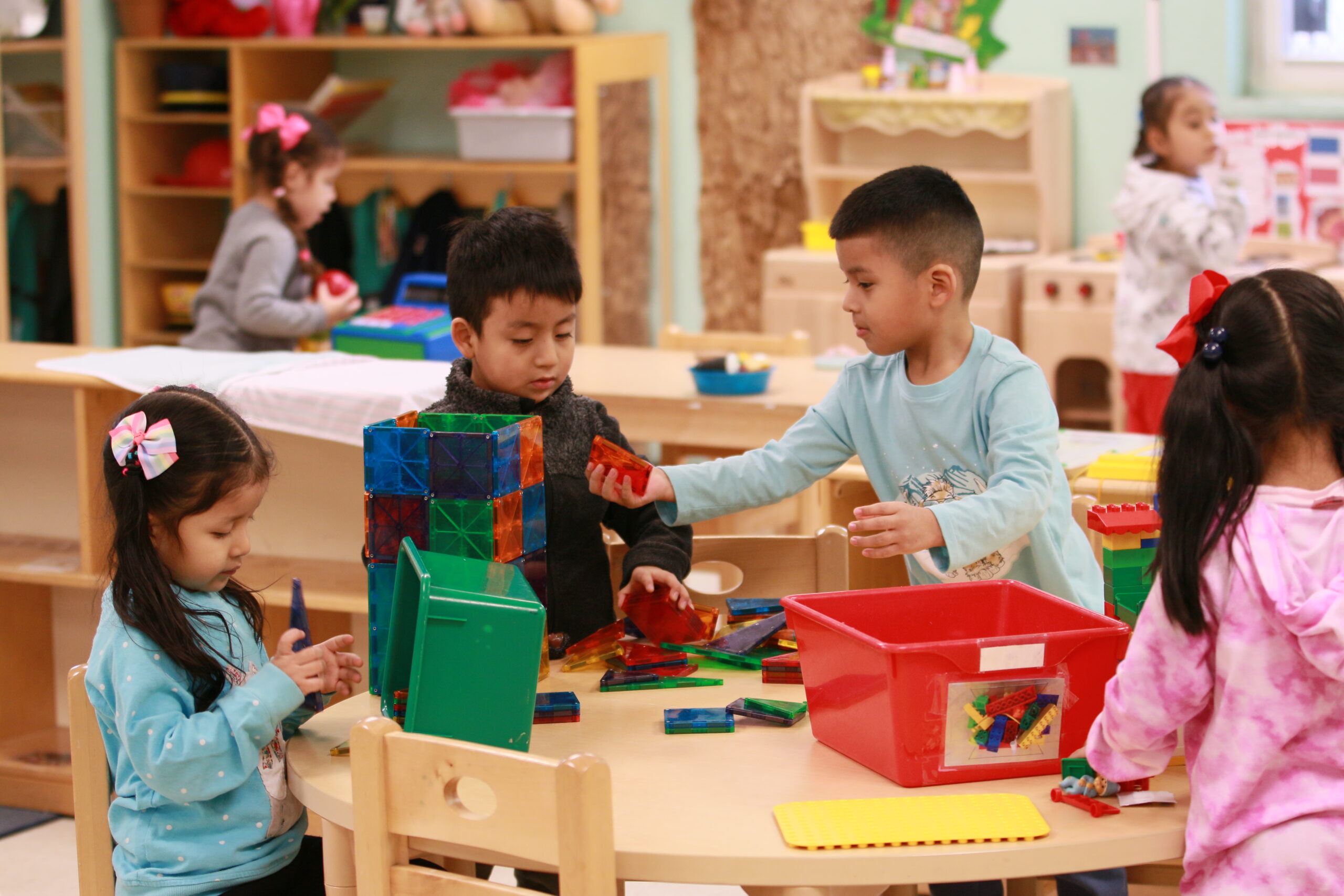


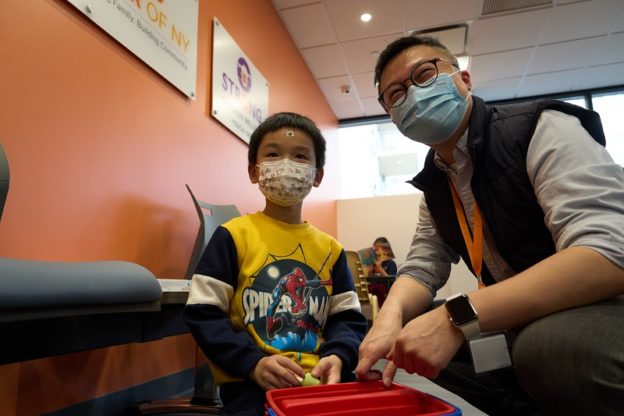
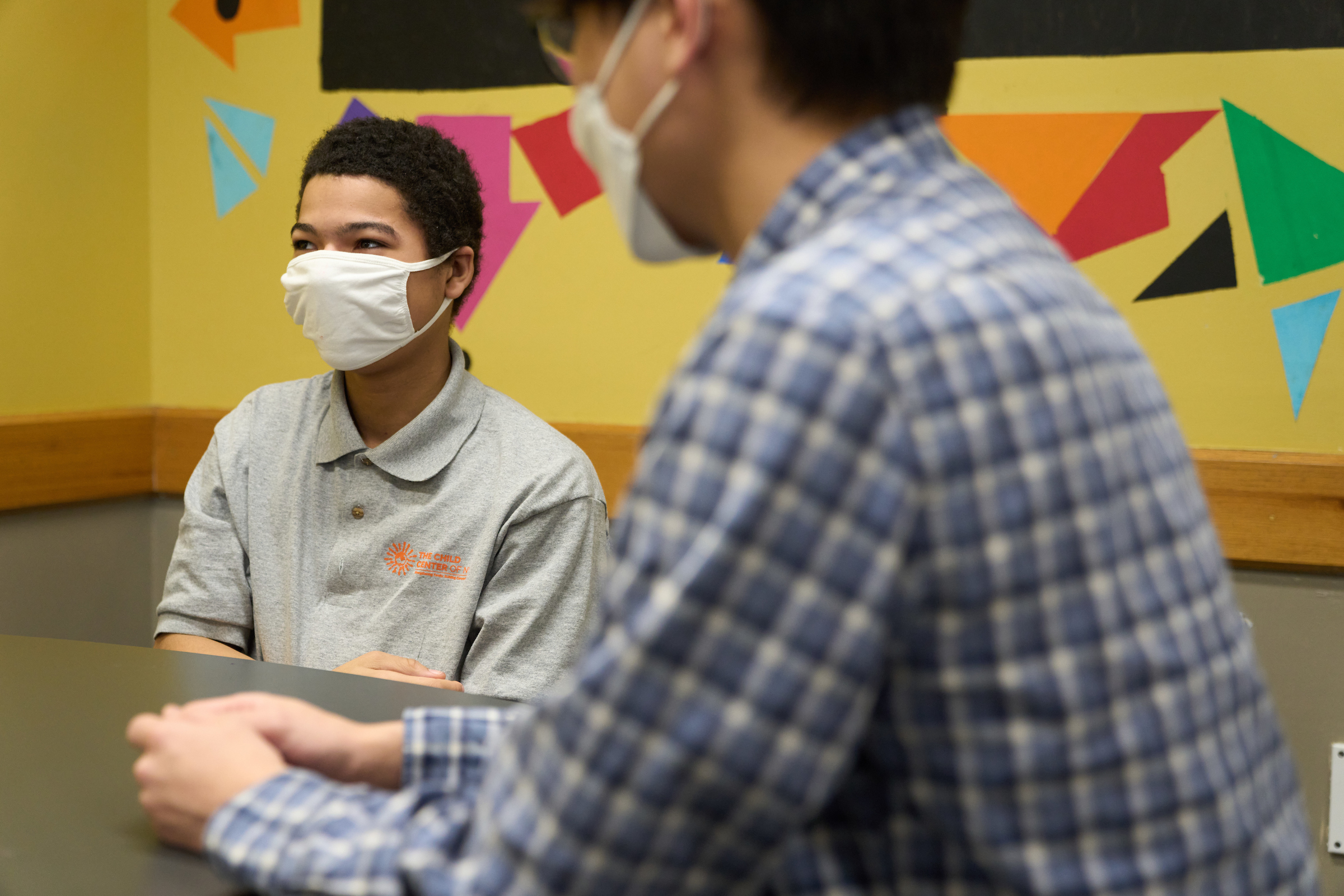 The COVID-19 pandemic has negatively impacted young people’s mental health—and adults’, too, if we’re being honest—so the
The COVID-19 pandemic has negatively impacted young people’s mental health—and adults’, too, if we’re being honest—so the 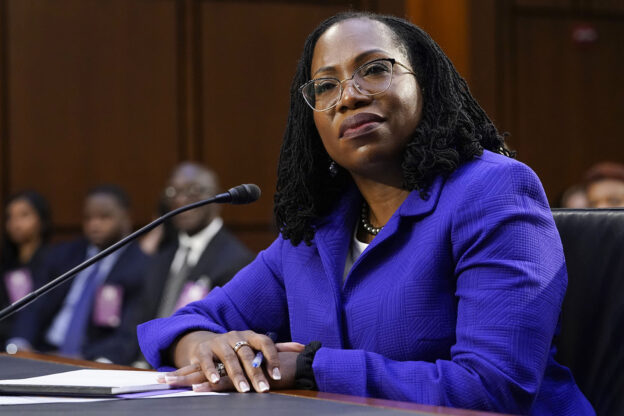
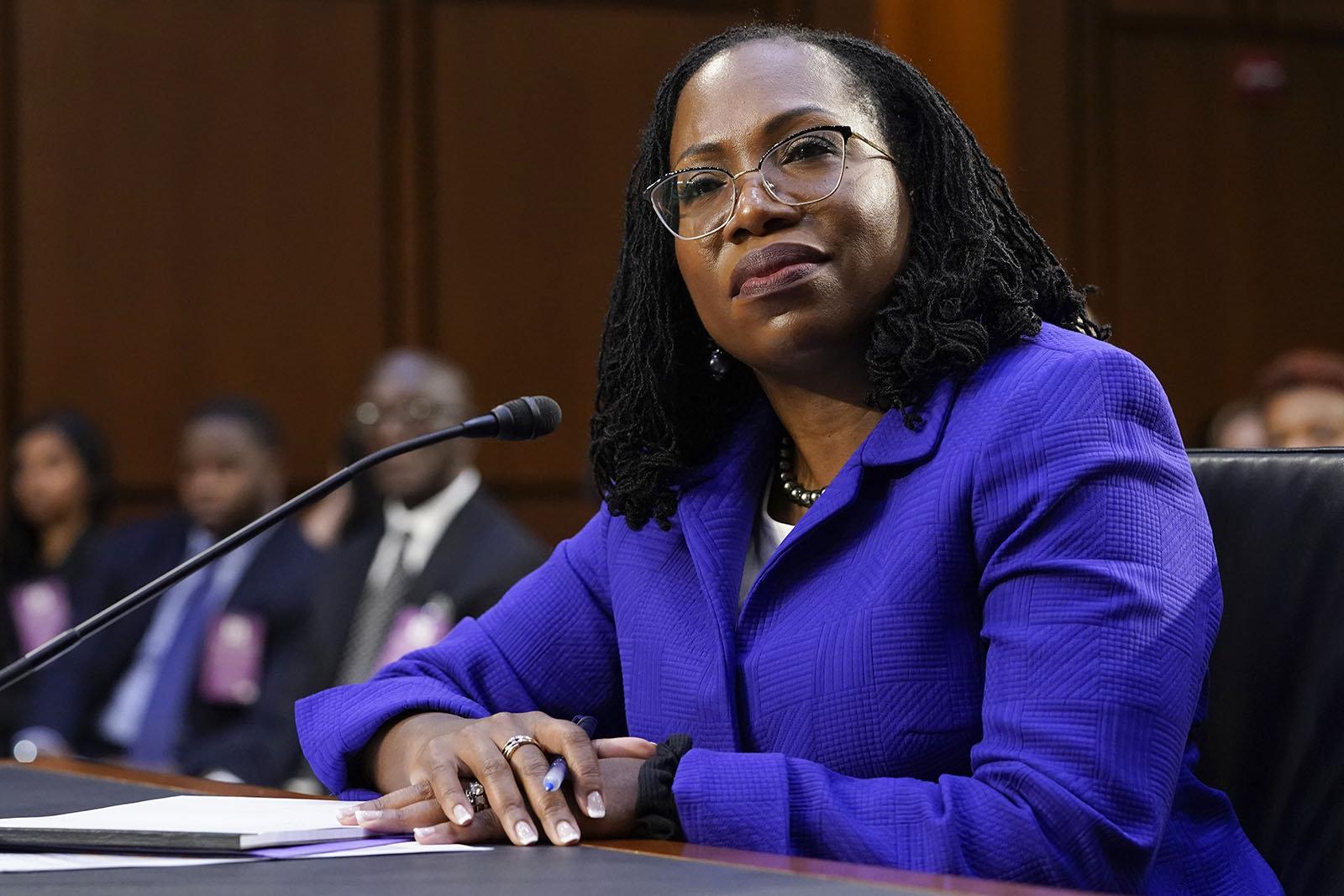
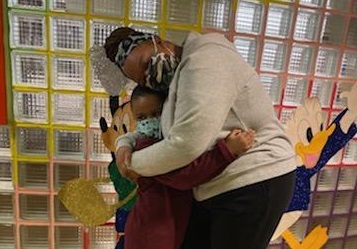
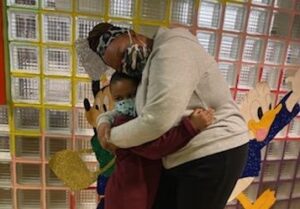
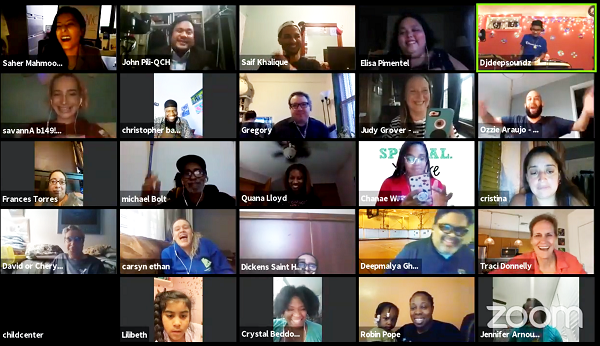
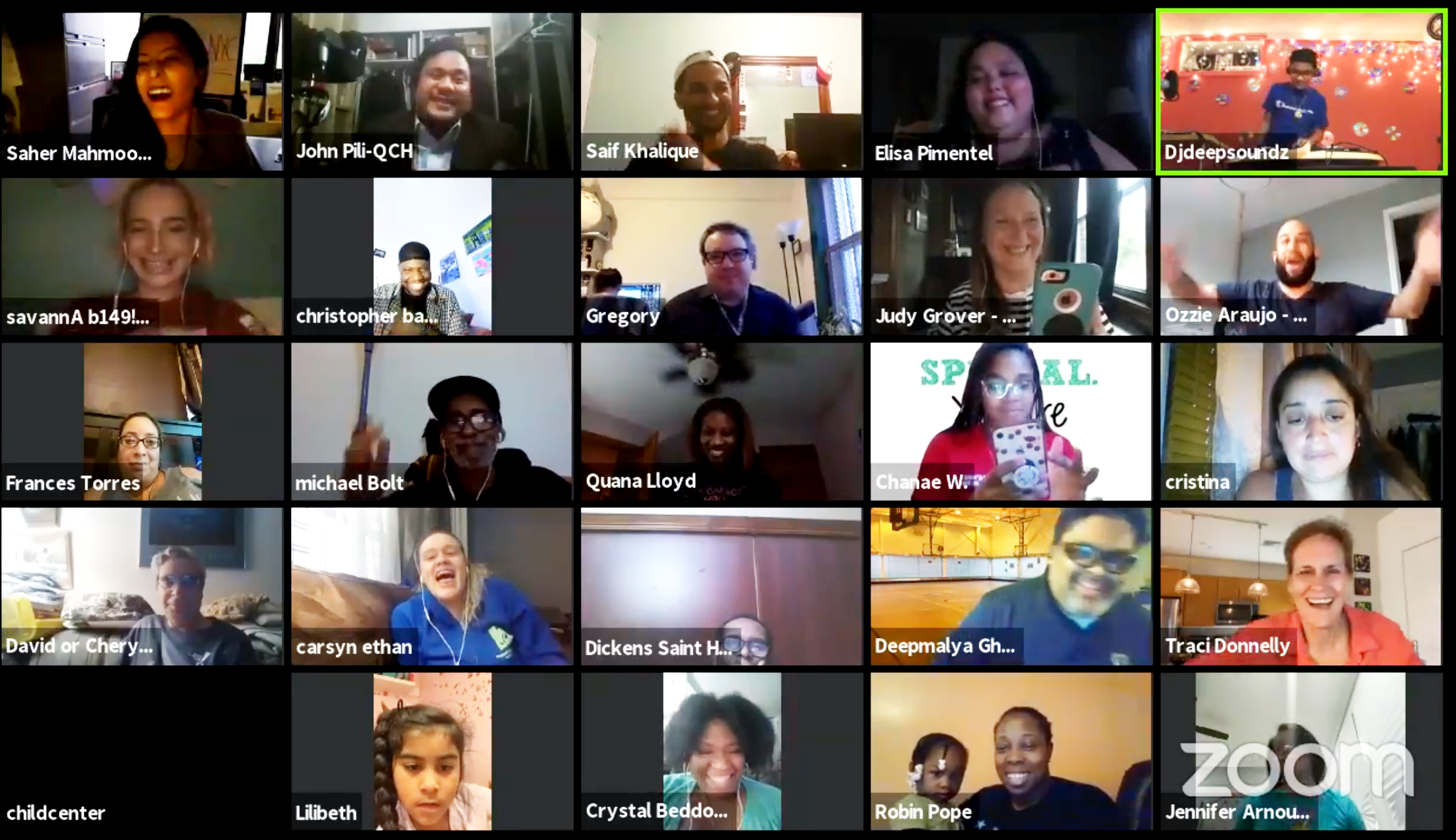 The Child Center of NY joined forces with other community-based organizations such as the
The Child Center of NY joined forces with other community-based organizations such as the 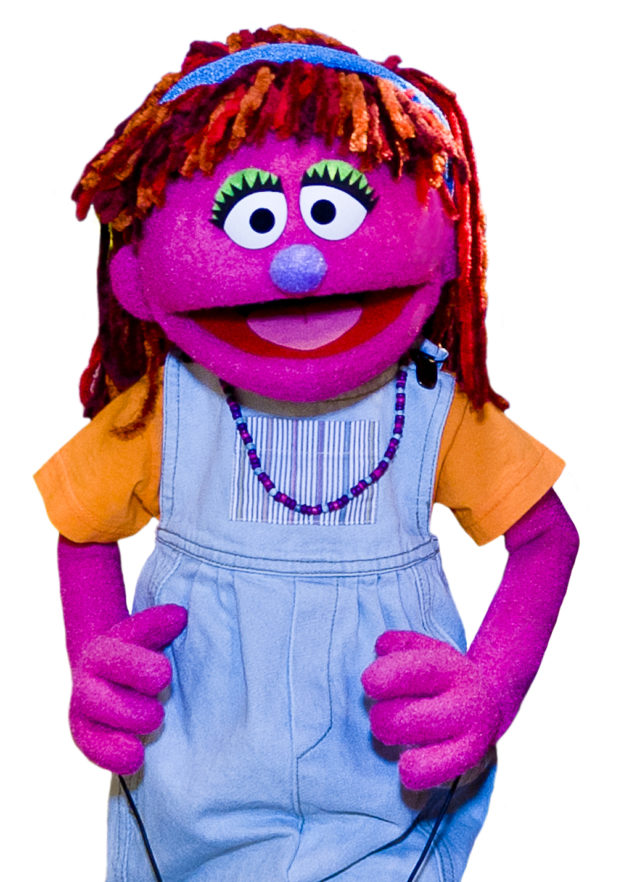
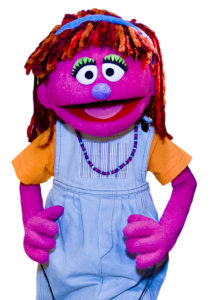 Sesame Street enjoys a well-earned reputation as a trailblazer not only in children’s television, but also in our society at large. From its portrayal and integration of BIPOC (Black, Indigenous, (and) People of Color) characters in the 1970s to its more recent additions of characters with autism or incarcerated parents, it has a history of changing hearts and minds — as well as public policy. The iconic show is well on its way to doing just that for people experiencing homelessness, through the character of Lily, a 7-year-old girl whose family has lost their apartment and is living with friends, moving from home to home. Here are some things we hope Lily’s portrayal goes on to include.
Sesame Street enjoys a well-earned reputation as a trailblazer not only in children’s television, but also in our society at large. From its portrayal and integration of BIPOC (Black, Indigenous, (and) People of Color) characters in the 1970s to its more recent additions of characters with autism or incarcerated parents, it has a history of changing hearts and minds — as well as public policy. The iconic show is well on its way to doing just that for people experiencing homelessness, through the character of Lily, a 7-year-old girl whose family has lost their apartment and is living with friends, moving from home to home. Here are some things we hope Lily’s portrayal goes on to include. 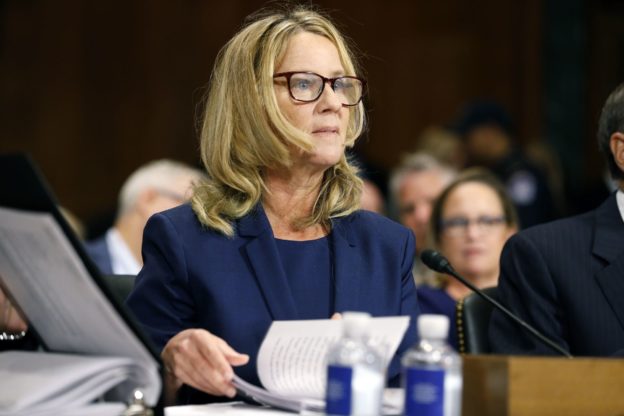
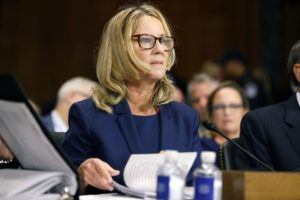 By Traci Donnelly
By Traci Donnelly
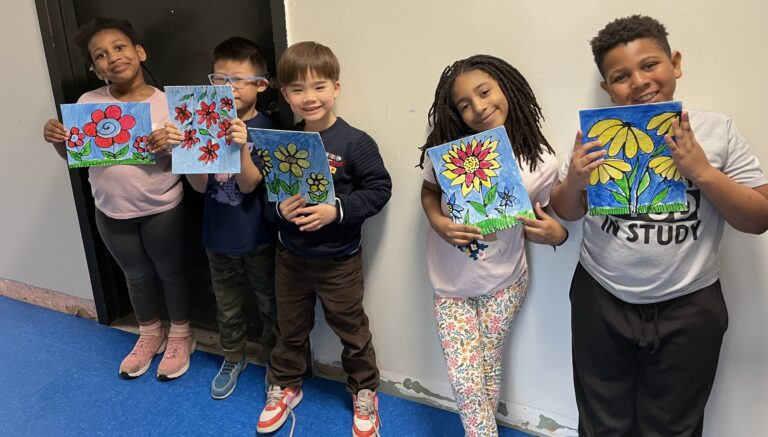
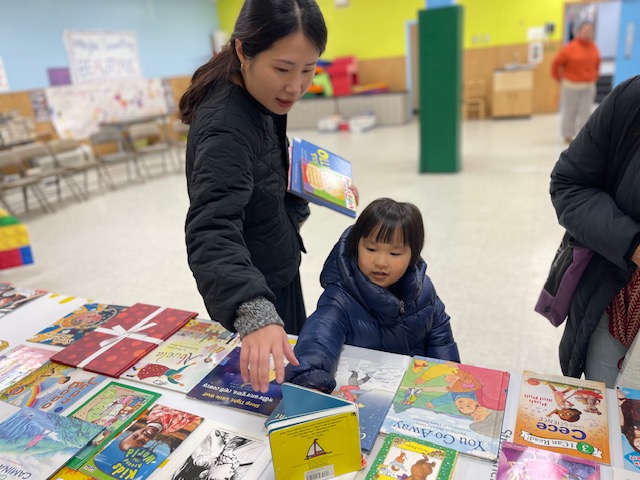

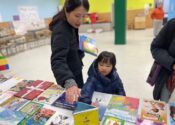


You must be logged in to post a comment.